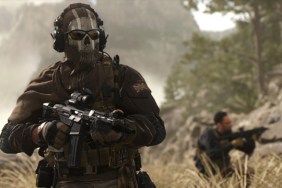With the news that the NSA and GCHQ have been spying on us in our game worlds, Daily Reaction’s Seb and Dan delete their ‘world domination plan’ LBP level and discuss their thoughts on what it all means.
Seb: The whole thing is rather surreal – the idea that paid government employees are logging into games, playing them, and hoping that they’ll be able to stop terrorism.
The New York Times states:
The spies have created make-believe characters to snoop and to try to recruit informers, while also collecting data and contents of communications between players, according to the documents, disclosed by the former National Security Agency contractor Edward J. Snowden. Because militants often rely on features common to video games — fake identities, voice and text chats, a way to conduct financial transactions — American and British intelligence agencies worried that they might be operating there, according to the papers.
Games known to have been infiltrated include World of Warcraft, Second Life and Xbox Live. Considering the leaked papers are pretty old (2008), however, it’s possible far more games have been tracked, with more popular modern titles like Call of Duty, and the PSN itself, all likely targets.
So here’s the thing – if tracking gamers, gaming and chat logs did fundamentally help stop terrorist attacks, there would be an argument for the tactic. Proponents would say that giving up a little of our freedoms would be worth the price to save countless lives, hell, you could even say that it’s worth it to save just one life. We’re all willing to allow some of our rights to be infringed to some degree if it increases our safety, and the safety of those we love, with most of us able to accept passports, gun controls, and limits to the sales of explosive chemicals as reasonable measures to stop everyone dying.
That’s why usually the discussion in all NSA-themed posts focuses on where the line is drawn, where people try to decide how far the government can go to stop threats or insidious plans. But, this time, that’s not the case – because the whole thing is pointless.
But for all their enthusiasm — so many C.I.A., F.B.I. and Pentagon spies were hunting around in Second Life, the document noted, that a “deconfliction” group was needed to avoid collisions — the intelligence agencies may have inflated the threat.
The documents, obtained by The Guardian and shared with The New York Times and ProPublica, do not cite any counterterrorism successes from the effort. Former American intelligence officials, current and former gaming company employees and outside experts said in interviews that they knew of little evidence that terrorist groups viewed the games as havens to communicate and plot operations.
Games “are built and operated by companies looking to make money, so the players’ identity and activity is tracked,” said Peter W. Singer of the Brookings Institution, an author of “Cybersecurity and Cyberwar: What Everyone Needs to Know.” “For terror groups looking to keep their communications secret, there are far more effective and easier ways to do so than putting on a troll avatar.”
Huge amounts of time and money was spent collecting the data of innocent civilians for absolutely no logical reason. Our habits, our lifestyles, our conversations and our purchases were all tracked, logged and possibly read.
This is barely worth a Daily Reaction. It’s a horrible infringement of our civil liberties, our rights, our ability to be able to think freely and clearly without risk of governmental crackdowns and, worst of all, it doesn’t even make sense.
Government, fuck off.
Dan: Looking at the situation as a whole, it is understandable that the growing response to the reports of how often our governments have been spying on us, is, as Seb eloquently put it, to say, ‘fuck off.’ But, thinking about the difficulties that are required for a government body to try and predict the movements of an ever looming threat concern, while understanding the rapidly evolving online sphere, makes it logical to see them try all sorts of things.
Most people feel violated by any sense of government or corporate snooping through the digital trails we leave on the internet, but the reality of it is that we have false pretenses of anonymity and security when we log on. Unlike simply speaking to a friend or passing them a note in person, using a digital relay is more like giving your message to another person so that they could pass on instead. This inclusion of a third party is the source of the problem, as your information is no longer owned by yourself, and how it will be used will be dependent on the contractual agreement you set up.
The big question is how was the information gathered? And, what, if any, contracts were broken to obtain it? As we have been hearing, it seems that the hosts of our information were not knowledgeable of the data mining going on by various government agencies, which is a prime example of how nothing on the internet is private. If our government was breaking the contract of agreement when accounts were set up, there is an issue. If the server hosts are lying about their involvement, and simply denying it to save face, we have a much bigger issue. Either way, there needs to be a greater understanding of how the internet works in its current state, and potentially a change in contracts of how accessible our information will be in the future.
As none of the data that was gathered seemed to have been helpful in anyway, it is easy to say that this was simply a waste and that it was an abuse of power for no reason. The reality is that, as the saying goes, hindsight is 20/20 and if this had stopped something, we would all be thankful. My issue is not that the information was taken, it was that it was handled in a manner that is almost comical.
Having our government pay employees to run around a virtual world, mine chat logs and run research studies to find out obvious stats that anyone of our readers could have told them, shows how little they understand the internet.
A group from the nonprofit SRI International, meanwhile, found that players under age 18 often used all capital letters both in chat messages and in their avatar names.
Video games are becoming a great source for anyone to reach other like minded people, but even if it were possible that extremist groups were using them to coordinate, it might be easier to find them by simply looking for the only group not posting penises on the web. 8==D
Should the government play CoD? Let us know in the comments below, email us at DailyReaction@PlayStationLifeStyle.net or tweet us your terrorist plots at Seb and Dan.








